(BISMARCK, ND) – With 34 days before Election Day, North Dakota Republicans are running from their record of “slash and spend” fiscal mismanagement on the heels of news that the state could be more than $16 million short of funding needed to sustain a popular property tax relief program.
“The North Dakota Legislature is at serious risk of bouncing a check when it comes to promised property tax relief,” said Senate Minority Leader Mac Schneider. “This is a direct result of the Republican majority’s unsustainable fiscal choices over the past several sessions. Dramatically increasing spending while steeply cutting corporate income taxes and enacting a permanent, 23 percent cut to the oil extraction tax has left North Dakota homeowners facing the very real prospect of a property tax increase.”
“The Dem-NPL has always stood for cutting the tax that people are concerned about, and that’s the property tax,” said House Minority Leader Kenton Onstad. “We could have property tax relief and a balanced budget, but the truth is the majority’s policies have drastically increased spending and slashed revenues in a manner that now threatens property tax relief.”
When North Dakota’s economy was booming, Republican leaders in Bismarck took a “slash and spend” approach to governing, passing legislation that significantly reduced personal and corporate income taxes while dramatically increasing spending. According to data from the nonpartisan Legislative Council, the corporate and personal income tax cuts reduced revenues by more than half a billion dollars in 2013 alone, while 82 percent of the corporate tax cuts went to corporations headquartered outside of North Dakota.
At the same time, the Legislature significantly increased spending; from 2009 to 2015, General Fund appropriations increased by 186 percent.
Now, with an election looming and North Dakota’s economy facing a downturn in oil and commodity prices, Republicans are trying to pass off the blame for their “slash and spend” policies. Republican candidates are circulating mail pieces claiming that it is “the biggest lie you will hear” in the 2016 election to say “Republicans cut the oil tax,” even though the legislative majority did precisely that. According to an estimate from Legislative Council in August of this year, oil extraction tax collections would have been an average of $13 million more per month had the majority not cut the oil extraction tax.
“It’s an objective fact that every Democrat in the North Dakota Senate voted to eliminate the budget-busting trigger incentive on an up or down vote,” Schneider added. “It’s also an objective fact that every Senate Republican voted to cut the oil extraction tax by 23 percent on an up or down vote. We could have had a bipartisan compromise that kept in place modest incentives to assist the oil industry during downtimes without unduly harming our budget. Instead, Republican policies like the permanent 23 percent cut to the oil extraction tax are now threatening priorities like property tax relief.”
Schneider and Onstad pledged to work with their colleagues – Democratic and Republican – to reform North Dakota’s budget and shore up the Property Tax Relief Credit ahead of next session. Democratic legislators previously attempted to preserve funding for the popular property tax credit during the August special session of the Legislature, but were rebuffed by their colleagues in the majority.
“They got us into this mess,” Onstad added. “We’ll advance bipartisan policies to get us out of it.”
-30-
Background:
North Dakota could be more than $16 million short of funding needed to sustain a popular property tax relief program: The state treasurer’s office recently requested a “deficiency appropriation” of $16.575 million for the Property Tax Relief Credit, which helps offset local property taxes.
North Dakota lost more than half a billion dollars in revenue due to Republican’s corporate and personal income tax cuts in the 2013 tax year alone; 82 percent of corporate cuts went to corporations headquartered outside of North Dakota: According to data from the non-partisan Legislative Council, the effect of corporate and personal income tax reductions was more than half a billion dollars in lost revenue compared to the pre-2009 rates in the 2013 tax year alone. Additionally, a 2013 memorandum from the Legislative Council estimated that out-of-state corporations received 82 percent of the corporate income tax cuts in 2010.
Every Democrat in the Senate voted to eliminate the budget-busting trigger incentive: Senate Journal 1733 (final adoption of Division A of Engrossed HB 1476).
Every Republican in the Senate voted to cut the oil extraction tax by 23 percent: Senate Journal 1734 (final adoption of Division B of Engrossed HB 1476).

